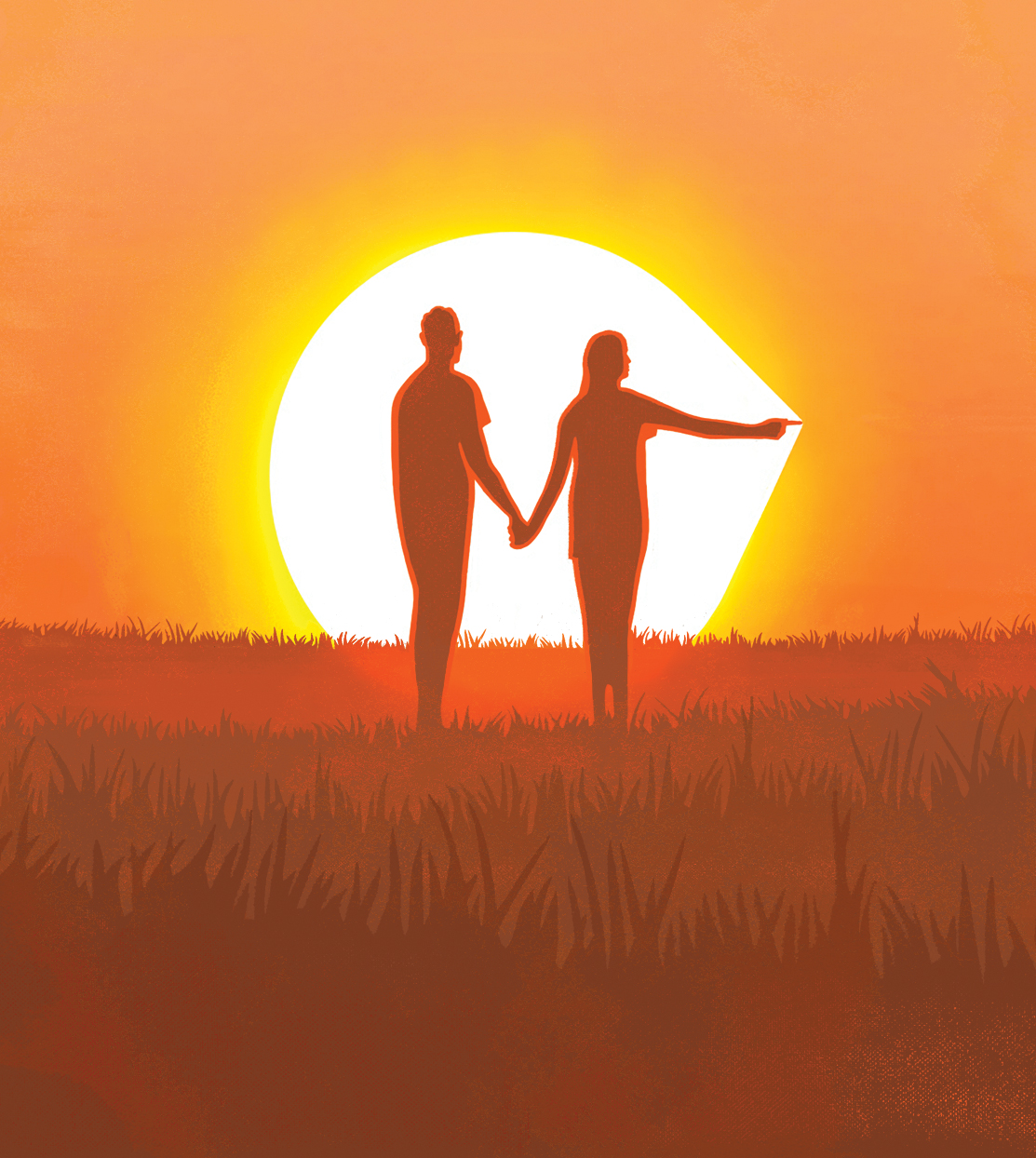It was a summer to remember. You know the one. The one with the 4,000-mile-long Saharan dust storm that barreled at us from across the Atlantic. It was supposed to arrive by the long weekend and create the most intense sunsets. She was the kind of person who wanted to witness the arrival of something like that.
We woke up one morning and she told me she’d like to see a Saharan dust cloud sunset in person. Where would we go, I say?
Miami, maybe Houston. I knew that she felt that one day we would all look back on this thing happening to us as a gift, not a punishment. All this time together, she’d say, trailing off over a cup of coffee. The Saharan dust cloud only comes once every hundred years! Cute, I’d say. Sure, she’d say.
We made it as far as Estevan, Saskatchewan. It’s about as far south as they’d let you go, because of you-know-what, and you could drive further east if you wanted to, but we didn’t. Maybe we were tired or maybe we were playing chicken with each other to see how far we could get away from the bubble that was home before we started missing the bubble. There would be no dust cloud sunset for us that year. It made it as far as the Gulf Coast. Houston might have worked, but we had to settle for an Estevan sunset. It was pretty good. The air was warm as a hug on a summer night and there was soft serve ice cream. We made a new bubble out of hotel linens and, when the inevitable summer storm rolled in, I tried and failed to count all the lightning bolts I saw. She slept through the whole thing.
The thing about dust is that it gets into everything. It irritates your nose and throat, and eventually your lungs, making it harder to breathe. The World Health Organization has a report on dust. It’s called Dust and it’s 96 pages long. Not only does dust get into everything, it is everything. Everything makes dust. There is dust from spores or minerals and even volcanic ash, and, of course, dust storms. You can’t escape it.
On the drive home we played a game we sometimes play on trips called More. We would point at something and if we liked it we would say “more.” We didn’t point at things we didn’t like and say “no more,” only the things we liked. I don’t remember everything we pointed at but it’s good to remember that we did point at things. We said more in the nicest way we could. It felt like being decent. It felt like saying Please.
This article appears in the November 2020 issue of Edify
